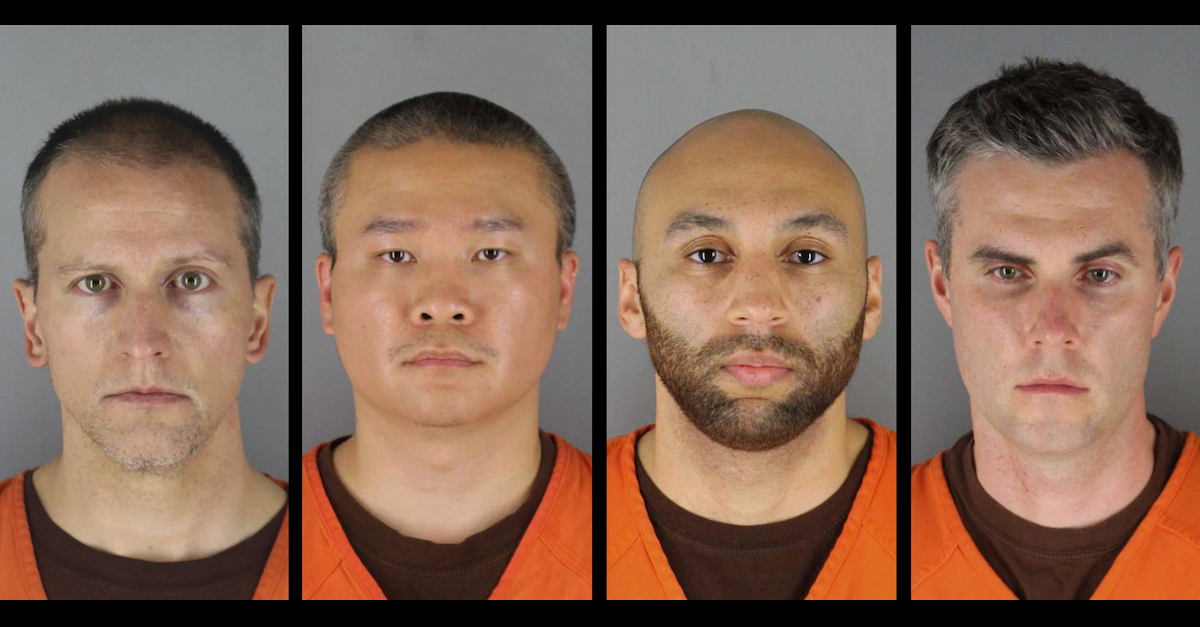
The defendants: Derek Chauvin, Tou Thao, J Alexander Kueng, and Thomas Kiernan Lane
The murder trial in the death of Minnesota man George Floyd, 46, is set to be broadcast, but prosecutors led by the Gopher State’s Attorney General Keith Ellison (DFL) want to place a hard limit on that. In a filing dated Wednesday, prosecutors said that the Hennepin County court was too broad in ruling that proceedings will be televised.
“The Court’s Order upsets that careful balance and violates the plain language of the Rules,” prosecutors argued in the filing. “The Order authorizes audio and visual broadcasts of this trial, even though the State did not consent to audio or visual broadcasts. … It also requires audio and visual recording of the testimony of most adult witnesses, even if they have not consented to the public broadcasting of their testimony. And it makes available a live audio feed of testimony by minor witnesses and George Floyd’s family, even if they have not consented to audio broadcasting.”
As seen on video, lead defendant Derek Chauvin, then a Minneapolis police officer, kneeled on Floyd’s neck for more than seven minutes during a May 25 arrest. Bystanders pointed out that the Floyd was falling unresponsive. Co-defendant Tou Thao stood between the bystanders and the officers arresting Floyd. Fellow officers Thomas Kiernan Lane and J. Alexander Kueng were on Floyd’s back. Floyd later died, and all four defendants were fired from the Minneapolis Police Department because of the incident. Chauvin faces charges including second-degree murder. The others face charges of aiding and abetting second-degree unintentional murder, and aiding and abetting second-degree manslaughter.
All four defendants are set to stand trial together, and have wanted video coverage of the proceedings, maintaining that the state engaged in leaks on the case.
“The Defendants argue that this relief is necessary to provide the Defendants with a fair trial in light of the State’s and other governmental actors multiple inappropriate public comments and to assure on open hearing in light of the ongoing pandemic,” said a June 25 filing from Kueng’s attorney Thomas C. Plunkett.
Minnesota law defaults to prohibiting audio and visual recordings in and around courtrooms, but it also presents a list of exceptions.
Ellison and his team, which includes former acting U.S. Solicitor General Neal Katyal, asserted that Hennepin County Judge Peter Cahill improperly based his decision on the First and Sixth Amendments of the United States Constitution, instead of the exceptions laid out by the Minnesota court rules. Prosecutors said that at the very most, the court should only allow a broadcast of 1) opening and closing arguments; 2) testimony from the defendants, assuming they want to take the stand and do not object to a public broadcast; and 3) testimony from any witnesses who do not object to being publicly broadcast.
[Mugshots via Hennepin County Jail]